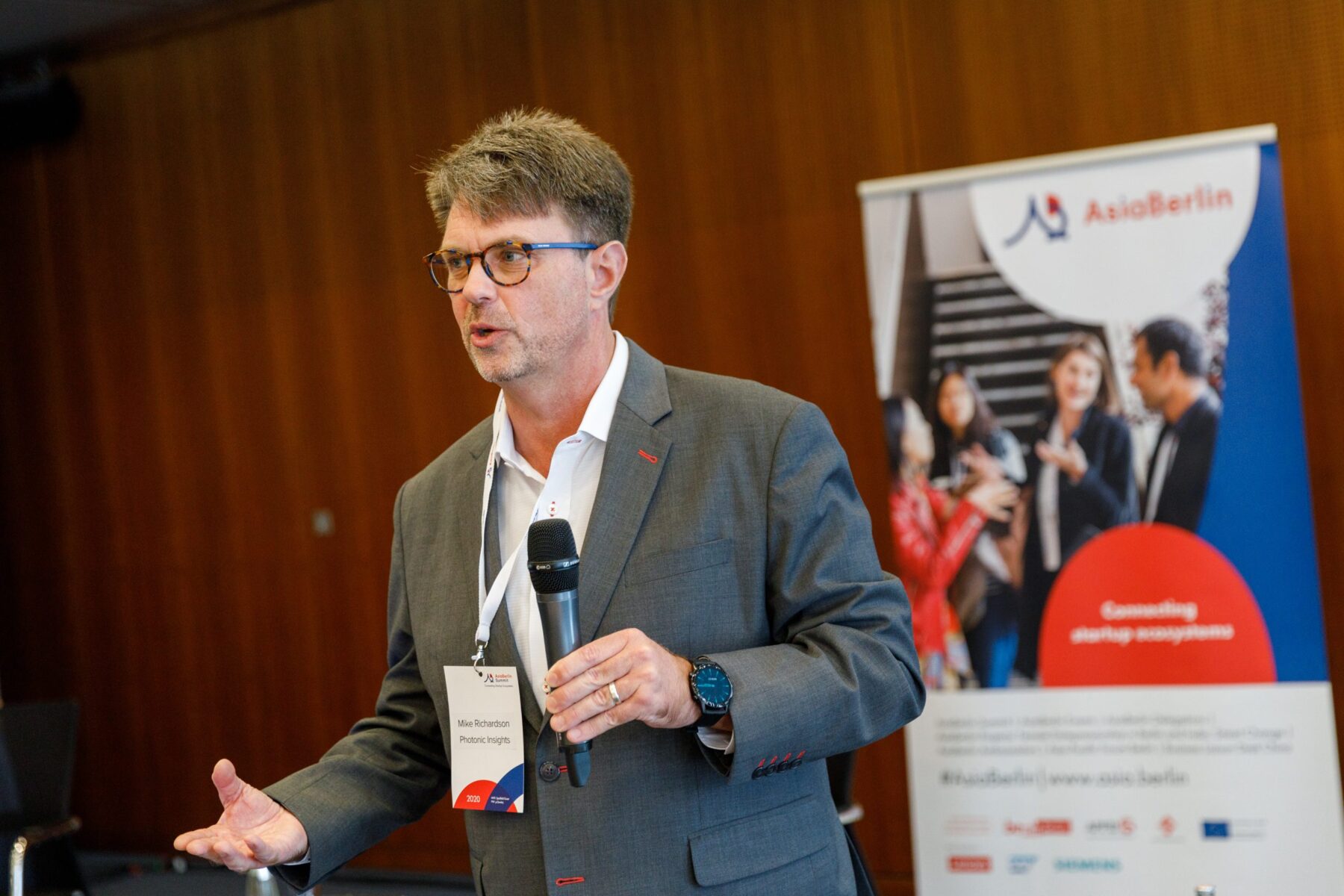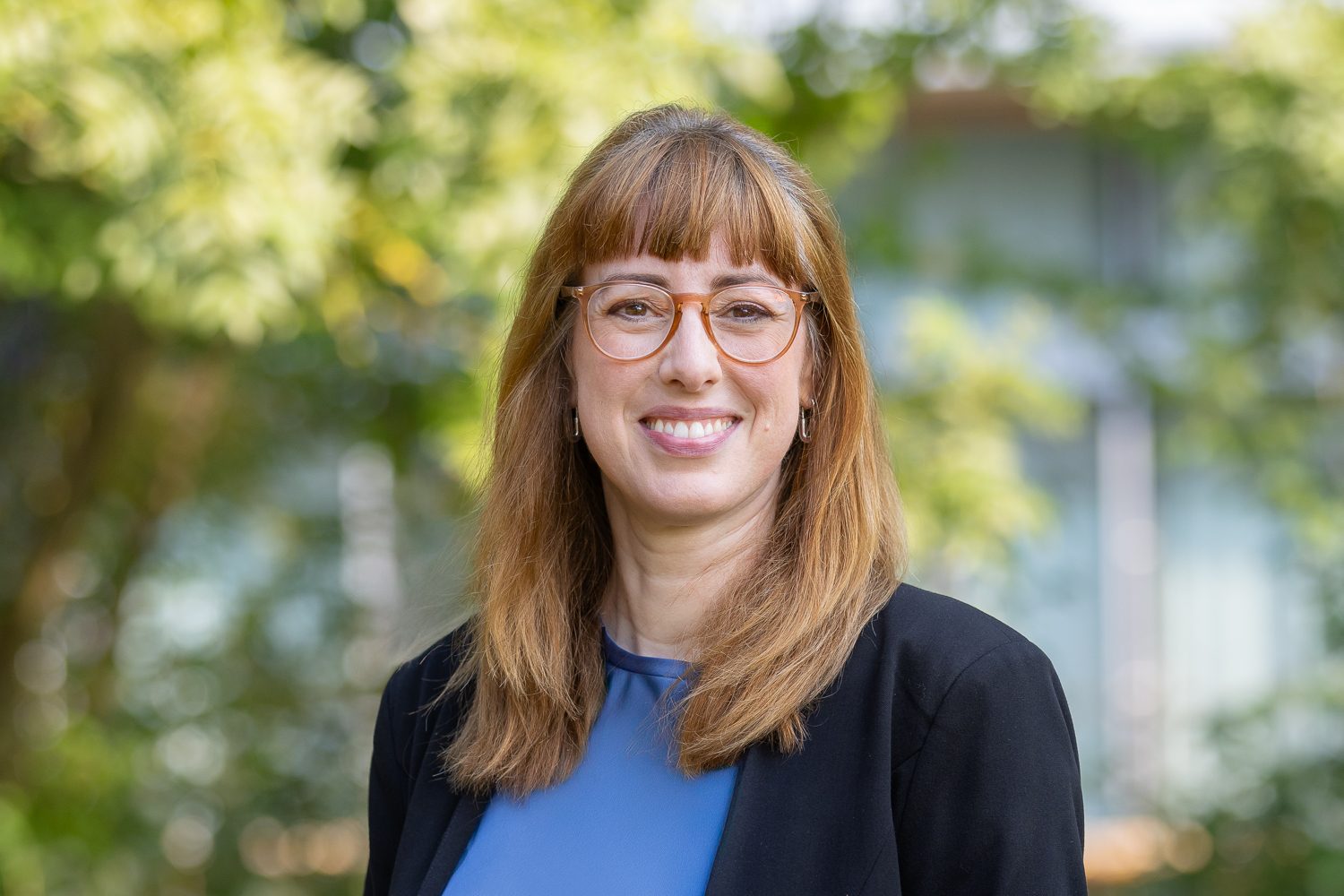
Game Changer – Allow us to introduce Mike Richardson, Deep Technology Entrepreneur
For our interview series “Game Changers” we met deep technology entrepreneur Mike Richardson, who develops spectrographic sensors with his company Photonic Insights (www.photonicinsights.com) in the GO:IN Startup Space at the Potsdam Science Park. Find out what drives Richardson and what advice he shares with other founders.
Who are you and what future are you working on?
Hi, I’m Mike Richardson, founder of Photonic Insights, a deep technology entrepreneur and generalist. I have a broad interest in various domains ranging from spectroscopy, to machine learning, to quantum physics. The unifying theme for me however is photonics. We develop low-cost spectrographic sensors to solve a wide variety of problems in agriculture, healthcare and in regard to water quality.
Our future vision is the following: Imagine something like a planetary nervous system, another layer of sensing capability that is interconnected with other sensors that are deployed to determine in real time the state and composition of materials. This is conceivable for food factories, farms or drainage systems, so any place where we can geolocate the generation of the spectral reading.
For various contexts we use broadly distributed spectral sensors, everywhere where insights from data are gained by unifying different readings. We can think of it loosely as different scales represented as a renormalization function. You can then add different spectral readings to a block spin renormalization visualization to determine on which scale which level of precision is accurate.
And this is where machine learning meets the spectral world. In this way we can scale and better understand seemingly unrelated spectra. With spectrometers we’re able to illuminate materials with specially tuned light and monitor how the molecules respond to this Illumination. You can think of it this way: With the right light each molecule has a very individual dance and we use our tools to identify the dance induced in order to identify the molecules present. We want to use this sensor capability all over the world to observe the dance of the molecules. This is how we understand what’s happening with materials in our environment in real time.
You came to the Potsdam Science Park in 2020 – how has your startup evolved since then?
We are celebrating our one-year anniversary at the Potsdam Science Park. We first moved into the Startup Space in November 2019. We’ve had a lot of positive changes since our move to Potsdam. Our company has expanded to a team of six people. We’ve just upgraded our company from a UG to a GmbH. Also, we’ve started two further research projects that evolved from contacts that we were able to make because we are located at the Potsdam Science Park.
Have your focus and fields of interest shifted with experience and why?
Over time, because I have a software background, my interest transitioned into the physical realm to do things with real objects. I had this urge to create. The act of creation in cyberspace was not enough to satisfy my drive. This led to my developing hardware, as a hobby at first, and to a certain degree as personal therapy, because I wanted a physical manifestation of all the code I was writing at the time.
My first projects were related to high power rocketry. I made active guidance systems to assist in the retrieval of high power rockets. I designed and delivered two generations of IP cameras for a German company.
There wasn’t a shift to spectroscopy because I’d been working with that technology for over 10 years. What changed was the price point. During this time I saw the price of spectrographic instruments fall considerably. The capabilities of instruments I deployed in 2009 that cost €150,000 are now available with a device that costs €2,000. And this trend continues. At Photonic Insights we work on the low-cost end of the developments. I can develop useful hardware instruments with spectral capabilities at attractive prices.
What do science-related entrepreneurs need to kick off successfully?
Number one is funding. However, most of us will not start with adequate funding. So, let me amend this: persistence and the ability to change course quickly. You need to be persistent because your idea, since it’s new, is generally not going to be accepted by the masses. Even within your scientific discipline your idea may seem heretical. Actually, this is a good sign that you are on the right path, doing something novel. So you have to be ready for most people to say no to your proposal – no matter how well articulated it may be.
It may be the case that what you are working on at the beginning of your journey is not what you are working on six months after you start. It’s important to be able to react flexibly and make significant changes at the right time. This may include changing your technical focus, as long as it aligns with your vision. Now this does not mean having to give up on your scientific research – but it may mean having to find new ways to realize your vision.
What advice would you give science-related founders in Potsdam and the Capital Region?
Take full advantage of the resources available in the region. My small company is growing because of the support from the Potsdam Science Park, the WFBB and other agencies in Potsdam/Brandenburg. Take the time to get involved with the various centres of technical competence and build your network. Now, when I say build your network, I don’t mean in a cold clinical manner. I mean get to know the people here in Potsdam, make friends, find colleagues that have a similar vision. And: Share, share, share and always find ways to support your colleagues especially in the Startup Space.
And also: Use the opportunity in Potsdam to engage with technologies or other disciplines you have not been exposed to. A great example is the MediaTech Hub here in Potsdam. Even if you’re involved in science and research, it’s worth taking a tour of the facilities. It’s interesting to learn what media technologies are being developed in Potsdam and how you may be able to use these yourself to increase the prominence of your deep technology enterprise.
Photo: Asia Berlin Summit 2020 in Berlin, Photo: Stefan Wieland 2020
Contact

Karen Esser
PR & Communications
karen.esser@potsdam-sciencepark.de + 49 331 237 351 103